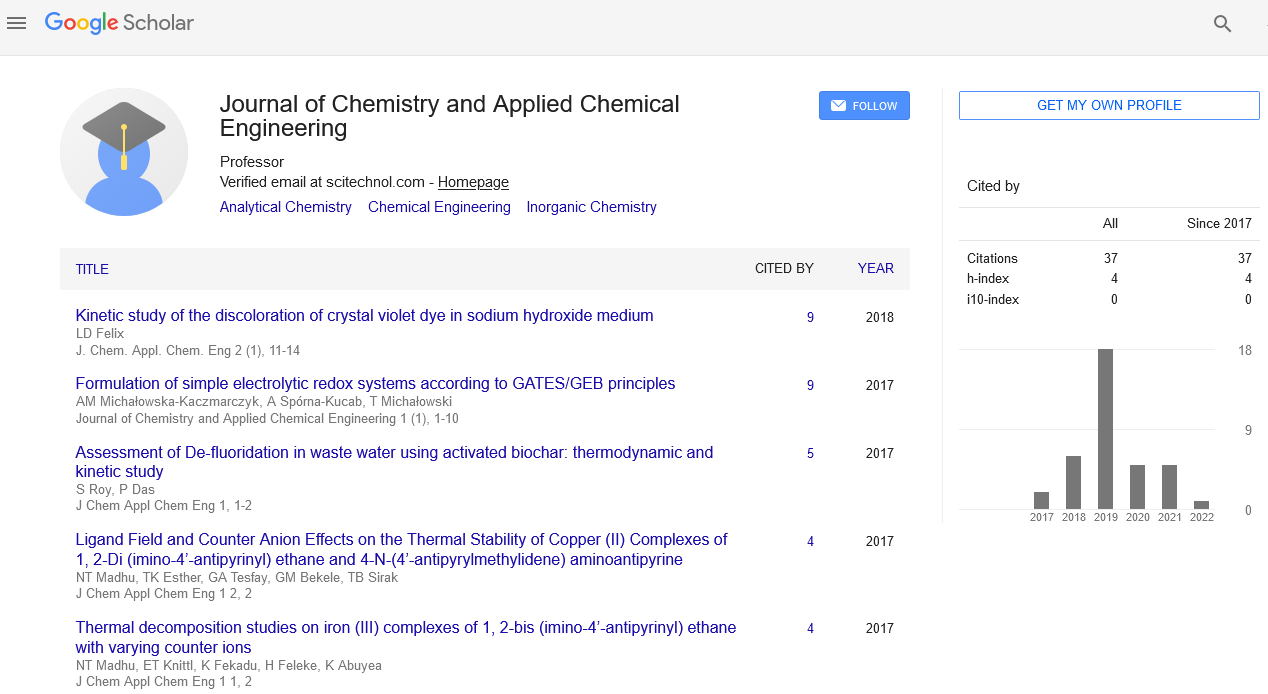Antibodies with functionality as a new generation of translational tools designed to secure upgraded biodesign and bioengineering of the future to come
Sergey Suchkov
Sechenov University, Russia
: J Chem Appl Chem Eng
Abstract
Abs against myelin basic protein/MBP endowing with proteolytic activity (Ab-proteases with functionality) are of great value to monitor demyelination to illustrate the evolution of multiple sclerosis (MS). Anti-MBP autoAbs from MS patients and mice with EAE exhibited specific proteolytic cleavage of MBP which, in turn, markedly differed between: (i) MS patients and healthy controls; (ii) different clinical MS courses; (iii) EDSS scales of demyelination to correlate with the disability of MS patients to predict the transformation prior to changes of the clinical course.
Ab-mediated proteolysis of MBP was shown to be sequence-specific whilst demonstrating five sites of preferential proteolysis to be located within the immunodominant regions of MBP and to fall inside into 5 sequences fixed. Some of the latter (with the highest encephalitogenic properties) were proved to act as a specific inducer of EAE and to be attacked by the MBP-targeted Ab- proteases in MS patients with the most severe (progradient) clinical courses. The other ones whilst being less immunogenic happened to be EAE inducers very rare but were shown to be attacked by Ab-proteases in MS patients with moderate (remission-type) clinical courses.
The activity of Ab-proteases was first registered at the subclinical stages 1-2 years prior to the clinical illness. About 24% of the direct MS-related relatives were seropositive for low-active Ab proteases from which 22% of the seropositive relatives established were being monitored for 2 years whilst demonstrating a stable growth of the Abassociated proteolytic activity. Moreover, some of the low-active Ab-proteases in persons at MS-related risks (at subclinical stages of MS), and primary clinical and MRT manifestations observed were coincided with the activity to have its mid-level reached. Registration in the evolution of highly immunogenic Ab-proteases would illustrate either risks of transformation of subclinical stages into clinical ones, or risks of exacerbations to develop.
The activity of Ab-proteases in combination with the sequence-specificity would confirm a high subclinical and predictive (translational) value of the tools as applicable for personalized monitoring protocols. Ab-proteases can be programmed and re-programmed to suit the needs of the body metabolism or could be designed for the development of principally new catalysts with no natural counterparts. Further studies on targeted Ab-mediated proteolysis may provide a translational tool for predicting demyelination and thus the disability of the MS patients
Biography
Sergey Suchkov graduated from Astrakhan State Medical University and awarded with MD, then in 1985 maintained his PhD at the Sechenov University and in 2001 his Doctorship Degree at the Nat Inst of Immunology, Russia. In 1989-1995, a Head of the Lab of Clinical Immunology, Helmholtz Eye Research Institute in Moscow. In 1995-2004, a Chair of the Dept for Clinical Immunology, Moscow Clinical Research Institute (MONIKI). At present, a Chair, Dept for Personalized Medicine, Sechenov University.; a member of the: New York Academy of Sciences, USA; American Chemical Society (ACS), USA; American Heart Association (AHA), USA; EPMA (European Association for Predictive, Preventive and Personalized Medicine), Brussels, EU; ARVO (American Association for Research in Vision and Ophthalmology); ISER (International Society for Eye Research); PMC (Personalized Medicine Coalition), Washington, USA
E-mail: ssuchkov57@gmail.com
 Spanish
Spanish  Chinese
Chinese  Russian
Russian  German
German  French
French  Japanese
Japanese  Portuguese
Portuguese  Hindi
Hindi 